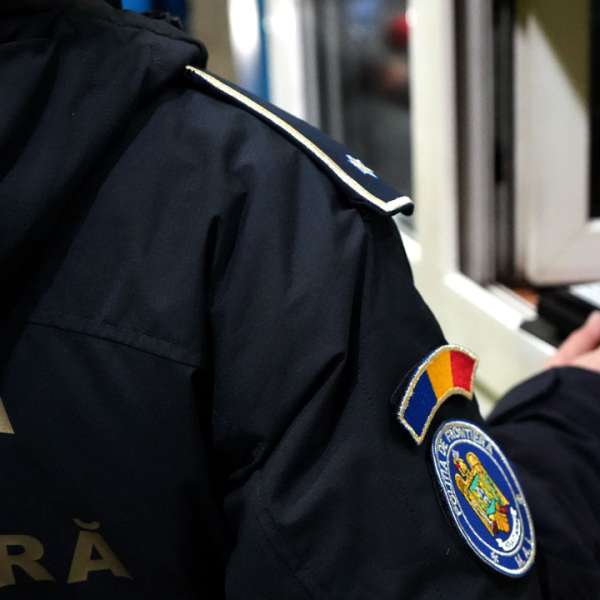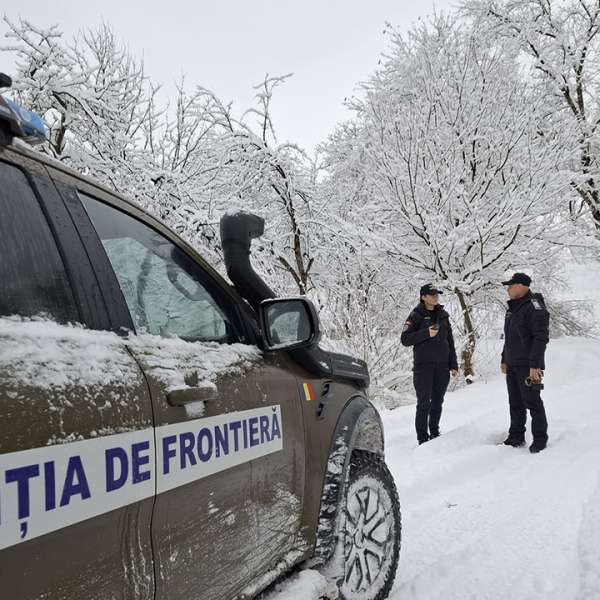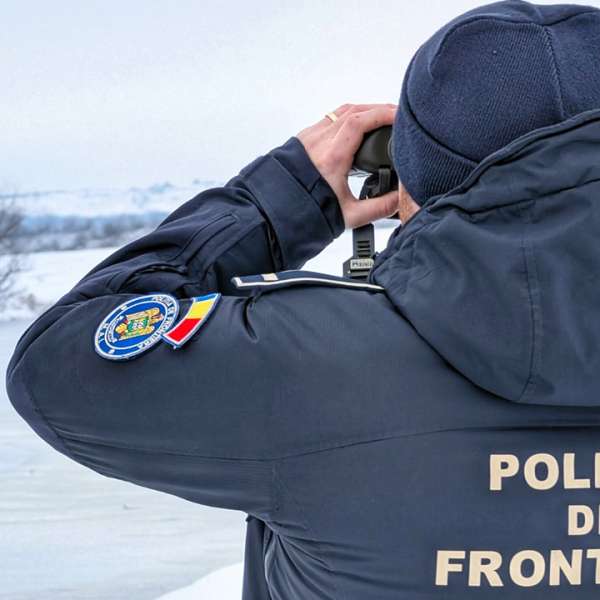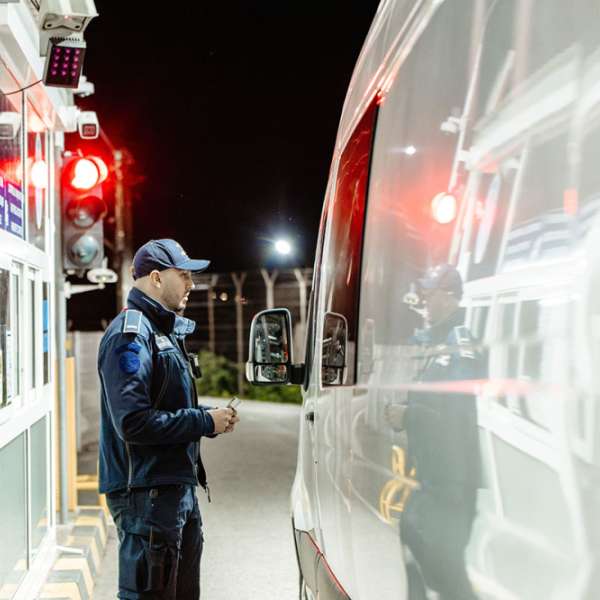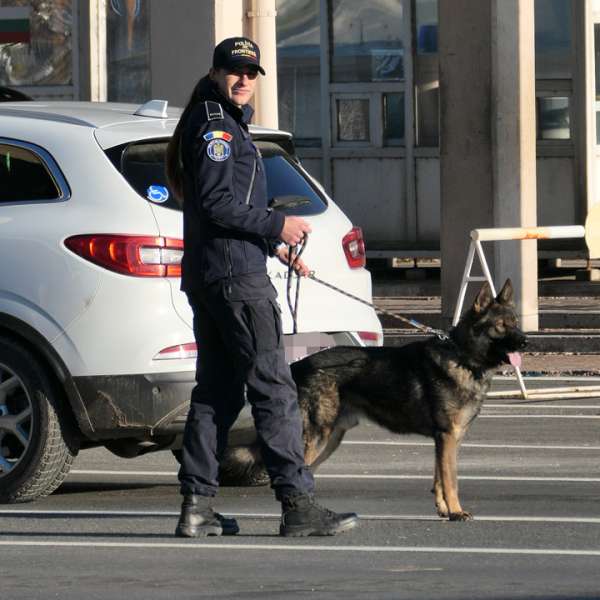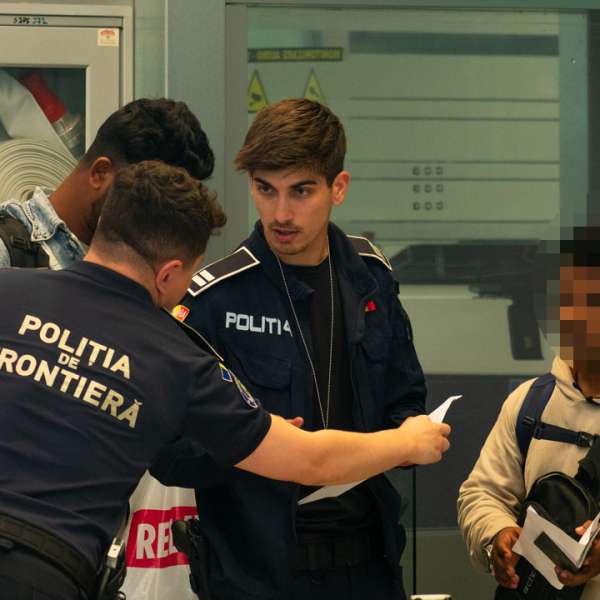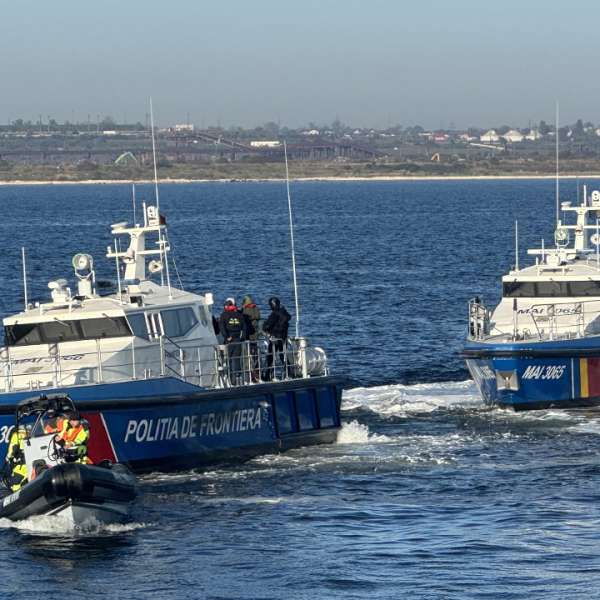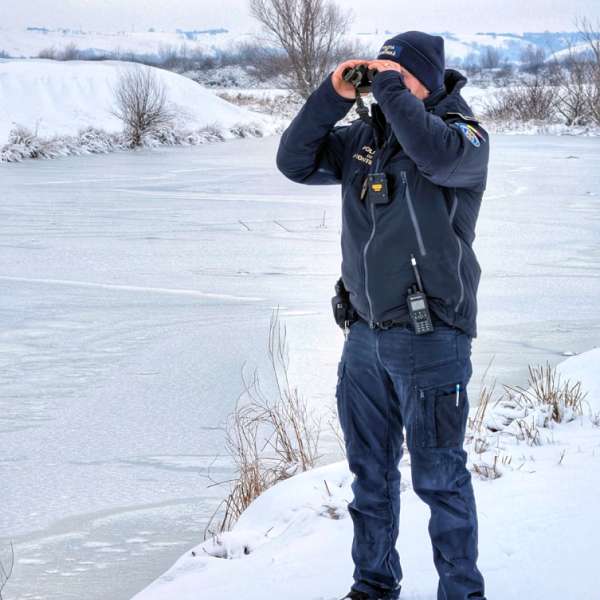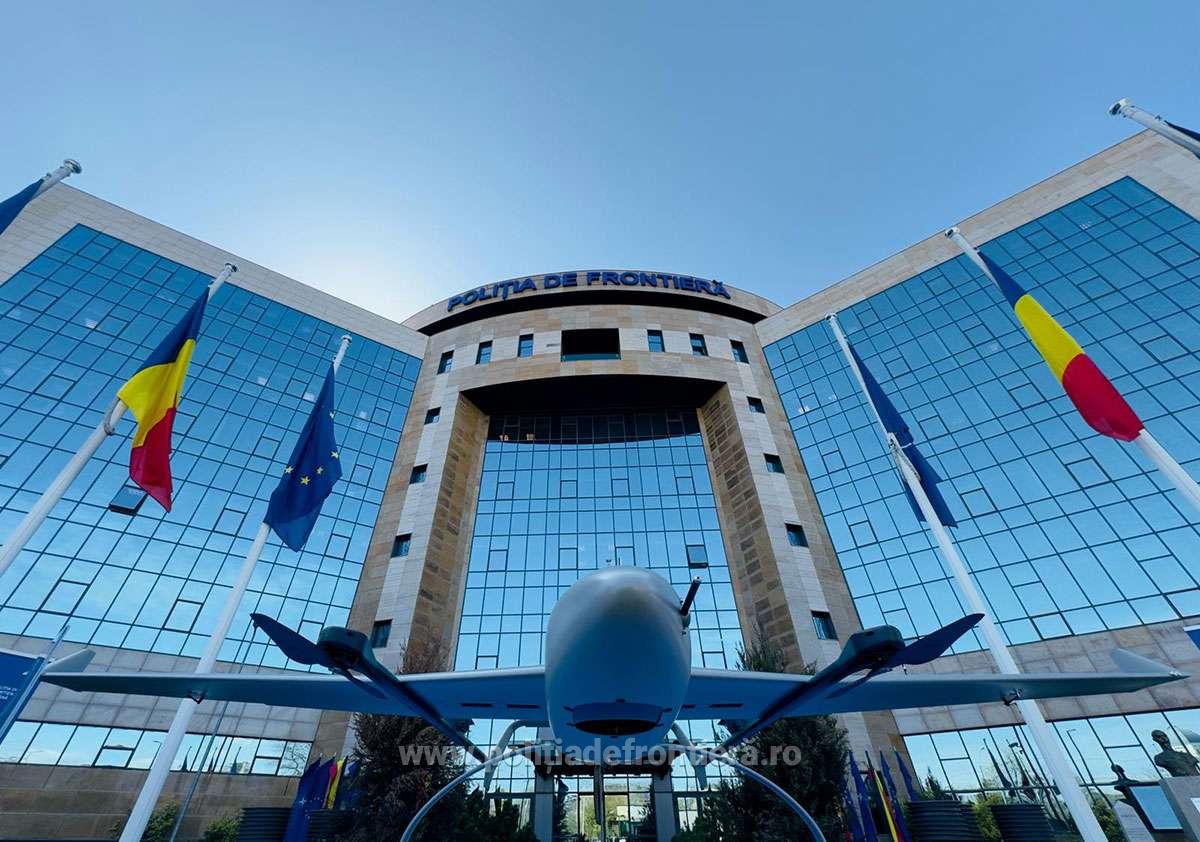
In 2024, the Romanian Border Police pursued the major national objective of integrating into the Schengen Area, which was carried out in two stages: March 31, 2024, for air and maritime borders and January 1, 2025, for land borders. Additionally, it continued to fulfill its duties as conferred by the national legislation in force, both in terms of optimizing border surveillance and control and effectively combating cross-border crime. Through its activities, the Romanian Border Police aimed to achieve the following objectives:
- Full implementation of the Schengen acquis and harmonization of national legislation
- Development of plans and concepts for mission execution in the context of eliminating border controls
- Human resource training and equipping with modern technology in compliance with required standards
- Facilitating cross-border traffic by increasing personnel at border control points, maximizing the use of crossing infrastructure, and employing mobile control equipment to enhance processing capacity
- Implementing various measures to limit the number of people attempting to cross the border illegally
- Ensuring high-level representation of the Romanian state, the Ministry of Internal Affairs (MAI), and the Romanian Border Police (PFR) in cooperation with similar structures in neighboring countries, EU member state partners, European agencies, and other collaborating institutions
RESULTS ACHIEVED
Traffic Figures
In 2024, border crossing points registered approximately 57.4 million border crossings (39.2 million EU citizens and 18.2 million non-EU citizens), for both entry and exit. Compared to the same period in 2023, when border crossings totaled 67.1 million, an overall decrease of 14.5% was recorded. This decline was due to Romania’s integration into the Schengen Area for air and maritime borders, as after March 31, 2024, travelers between Schengen member states via these borders no longer had to undergo border checks.
However, at land borders, there was an increase in traffic at most border segments in 2024:
- 10.4% increase at the border with Serbia
- 9% increase at the border with Bulgaria
- 7.4% increase at the border with Hungary
- 3.7% increase at the border with Ukraine
Regarding vehicle traffic, approximately 18 million vehicles crossed the border, representing a 4.3% increase compared to 2023 (17.1 million vehicles). The busiest border was with Hungary, accounting for 44% of the total traffic.
Illegal Activities
In 2024, 41,715 illegal acts were recorded, including 19,091 crimes and 22,624 contraventions, marking an 87% increase compared to the previous year.
- The most frequent crimes involved attempted or illegal border crossings (13,263 cases), followed by traffic-related offenses (1,345 cases) and document forgery and use of forged documents (1,090 cases).
- The Ukrainian border saw the highest number of criminal offenses (65% of the total crimes detected at Romanian borders).
- The Moldovan border registered the highest number of contraventions (61.6% of all administrative sanctions applied).
Additionally, in 2024, the Romanian Border Police opened 12,801 criminal cases and carried out activities based on 702 delegations issued by prosecutors, mainly from DIICOT.
Entry into the country was denied to 10,266 foreign citizens (a 41.7% increase compared to 2023) due to failure to meet legal entry conditions. The primary reasons for denial included:
- Exceeding the 90-day stay limit in EU countries within a six-month period
- Lack of necessary documentation to justify the purpose and conditions of stay
- Absence of a valid visa
At border control points, authorities identified approximately 142,000 Schengen or national alerts and handed over 1,135 individuals (Romanian and foreign citizens) wanted under general pursuit warrants to the competent authorities.
Actions to Prevent and Combat Illegal Migration
Efforts to combat illegal migration continued, particularly strengthening control measures at the Serbian and Bulgarian borders. This phenomenon must be viewed in a European context, where illegal migration on the Western Balkans route decreased by about 78%, although Serbia remains a key transit state for migration toward Croatia and Hungary.
During 2024:
- 18,396 foreign citizens were detected attempting to illegally enter Romania, including 14,800 Ukrainians seeking protection from the Romanian state.
- 2,389 foreign citizens were caught attempting to exit Romania illegally, mostly at the Hungarian border. Many of these individuals were imported laborers who initially entered Romania legally with work visas.
A large number of migrants acted in organized groups with the assistance of traffickers. Authorities identified and dismantled 351 individuals, both Romanian and foreign, involved in migrant smuggling.
The top nationalities among those caught attempting illegal border crossings included:
- Ukraine, Syria, Iraq, Nepal, Bangladesh, Turkey, Ethiopia, Sri Lanka, Pakistan, and India
Regarding illegal border crossing methods:
- 85% were detected attempting to cross at green borders
- 12% tried hiding in transport vehicles
- 2% attempted to cross via maritime and river routes using boats
- 1% used other methods, including forged travel documents, impersonation, or evading border control
Despite growing regional migration pressure, illegal crossings at the Serbian border dropped by over 60%, thanks to increased security measures and joint operations with Serbian border authorities. In 2024, border police successfully prevented the entry of 259 migrants, a 67% decrease compared to 2023.
Measures applied by the Romanian Border Police to limit the number of people attempting to enter the country illegally are as follows:
- Deployment of new surveillance technology
- Strengthening border security along the Serbian, Bulgarian, and Hungarian borders
- Increasing the number of patrols and enhancing aerial surveillance
- Integrated operations with Romanian Police, Gendarmerie, General Inspectorate for Immigration, and Aviation Inspectorate.
Actions Carried Out to Prevent and Combat Cross-Border Crime
Cigarette Smuggling
In 2024, regarding cigarette smuggling, the northeastern region remained the most affected area. Combating this phenomenon has been a permanent and priority objective for the Border Police, both through institutional efforts and collaboration with other state agencies and civil society representatives.
Cigarette smuggling, including counterfeit products, is currently assessed as one of the most serious threats to border security, causing millions of euros in losses for the Romanian budget and the budgets of EU member states.
As a result of missions carried out in the area of competence, the authorities seized approximately 2.8 million packs of cigarettes, with an estimated value of 60 million RON, as well as over 13,900 kg of tobacco and 1,292 kg of hookah tobacco. Additionally, at the central level, three organized crime groups involved in cigarette smuggling were dismantled, leading to the identification and arrest of 21 individuals.
Other Smuggling Offenses
In total, 111 economic-financial crimes and 387 smuggling and customs fraud offenses were recorded, with confiscated goods valued at approximately 500 million RON.
Border Police officers also discovered and seized large amounts of cash and alcoholic beverages, as well as gold and silver jewelry, precious stones, and coins belonging to the national cultural heritage.
Stolen Vehicles
During the reporting period, within the area of responsibility of the Border Police, 339 vehicles reported as stolen or suspected to be stolen were discovered (275 cars, 25 trucks, 16 minibuses, 6 motorcycles, 1 bus, and 6 trailers), a 48% increase compared to 2023. Individuals involved in this illicit activity were citizens from Austria, Belgium, Bulgaria, Croatia, Germany, Georgia, Greece, Iran, Italy, and Romania.
Pe linia dreptului de proprietate intelectuală, During the reporting period, 672 criminal offenses related to intellectual property rights were recorded. Border police officers, independently or in collaboration with customs officers, seized counterfeit goods bearing the trademarks of protected international brands, including:
- 446,395 pieces of clothing and lingerie
- 105,247 pairs of footwear
- 379,379 pieces of cosmetics and perfumes
- 58,063 pieces of leather goods
- 28,901 pairs of sunglasses
- 9,880 phone accessories (headphones, cases, chargers)
Other Discoveries in 2024
- 182 weapons, most of them non-lethal
- 2,884 cartridges and 8,634 pyrotechnic materials
In combating illegal drug trafficking, independently or in collaboration with officers from other competent structures, various quantities of cannabis, amphetamines, heroin, psychotropic substances, precursors, and other prohibited drugs were discovered and removed from the illegal market (372.8 kg of cannabis, 1 kg of hashish, 42.45 kg of amphetamines, etc.).
Actions Against Illegal Fishing, 432 illegal fishing offenses were identified, and 1,047 fines were applied, totaling 495,700 lei. Authorities also seized:
- 32 boats and 20 boat engines
- 4,692 kg of fish (including 40 kg of sturgeon) and 2 kg of caviar
- 15,401 m of monofilament nets
- 7,199 m of textile nets
- 5,664 m of nylon nets
- 225 fishing tools
Actions to Prevent Illegal Waste Transport
The Romanian Border Police, in collaboration with the Environmental Guard, implemented actions to prevent the entry of waste shipments that did not meet legal conditions. These actions included verifying and inspecting transport vehicles and conducting targeted monitoring within the area of responsibility.
In 2024, during both individual interventions and large-scale operations in collaboration with the National Environmental Guard and the General Directorate of Customs, approximately 8,000 tons of waste were stopped at the border. These included metals, paper and cardboard, textiles, furniture, rubber (tires), plastic, and mixed waste (furniture, appliances, food, etc.).
Actions in the Context of the Ukraine Conflict
Regarding the military conflict in Ukraine, all necessary measures continued throughout 2024 to manage the ongoing pressure at northern border checkpoints.
Efforts to secure the Ukraine border, which is also an external border of the European Union, were supported by the General Aviation Inspectorate and Frontex, which deployed a contingent to the area.
The Border Police consistently improved measures to manage the refugee crisis, which remains dynamic. Over 7.8 million Ukrainian citizens crossed the national border (both entry and exit), representing a slight increase compared to 2023. Of these, over 1.6 million were minors, and approximately 15,000 individuals were caught attempting to cross the border illegally. Unfortunately, 11 cases of deceased individuals were also recorded.
INTERNATIONAL COOPERATION:
In 2024, the Romanian Border Police maintained excellent cooperation with similar institutions in neighboring countries, EU member states, and third countries, based on existing agreements, conventions, and protocols, as well as cooperation related to Schengen Area integration.
This collaboration involved both high-level meetings between institutional leaders and specific activities aimed at ensuring full compliance with the Schengen acquis, respecting the legal regime of state borders, and enhancing cooperation to combat cross-border crime.
Through international cooperation activities, information exchanges and joint or simultaneous actions were conducted with European authorities under the aegis of INTERPOL, EUROPOL, FRONTEX, and the European Anti-Fraud Office.
In 2024, the Romanian Border Police participated in 16 joint operations organized under FRONTEX, with 273 border police officers involved as experts in various professional fields and crew members for naval mobility means.
During FRONTEX operations, five maritime patrol vessels, patrol vehicles, and thermal vision surveillance vehicles were deployed.
It is noteworthy that the Romanian Border Police is one of the top three contributors to the FRONTEX expert reserve, actively participating with specialists in various operational areas. Since September 2024, the Border Police has hosted the first ETIAS command team, consisting of 35 experts, coordinating FRONTEX resource deployments in operational areas across Romania, Moldova, Bulgaria, and Georgia.
PRIORITIES 2025
For 2025, the Romanian Border Police aims to:
- Fulfill the responsibilities and activities resulting from Romania’s full integration into the Schengen Area, including eliminating border controls with a focus on preventing and combating illegal migration, conducting Schengen evaluations, preventing the entry of illegal waste shipments, and combating cross-border crime in all its forms.
- Maintain a high level of border security
- Conduct integrated missions at internal borders
- Provide necessary support for planning actions financed by non-reimbursable external funds for the 2021-2027 financial framework
- Strengthen cooperation with national and international institutions and other law enforcement agencies to prevent cross-border crime.
